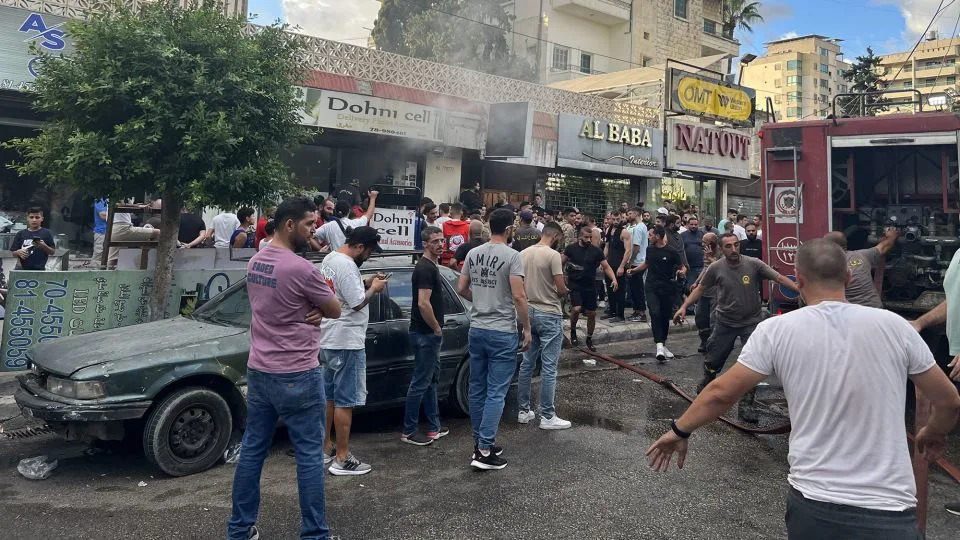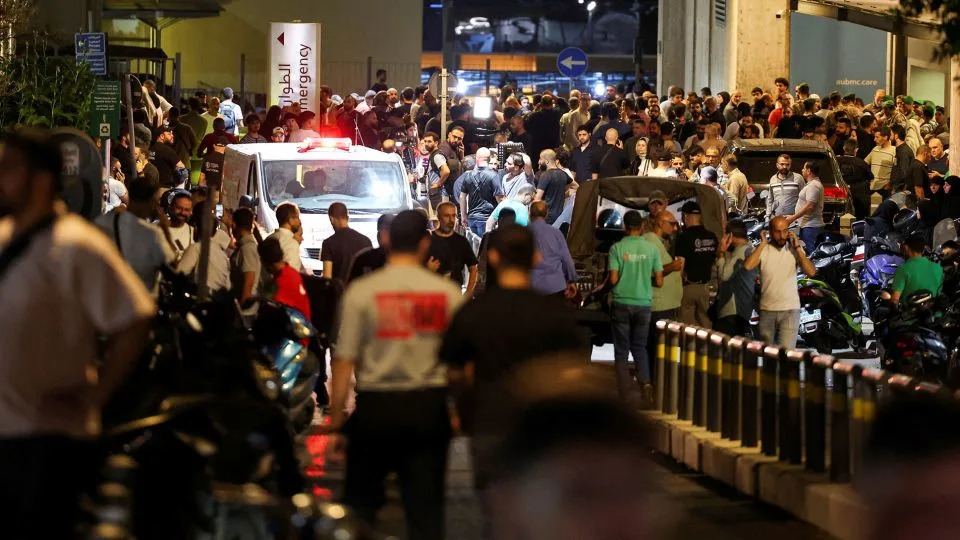Lebanon is reeling after facing deadly back-to-back attacks targeting Hezbollah members – with pagers simultaneously exploding across the country on Tuesday, then walkie-talkies detonating in a similar fashion on Wednesday.
Panic, fear and grief have now gripped the country, with questions swirling about how the attacks could have been carried out, where the devices came from, and whether this latest development could plunge the Middle East into a wider regional conflict.
At least 37 people, including children, have been killed in the attacks, which Lebanese officials have blamed on Israel. Thousands more are injured – many maimed and in critical condition after communications devices exploded in their pockets or in their face.
While Israel has refused to publicly comment, it warned on Wednesday that a “new era” of war was beginning, appearing to tacitly acknowledge its role.
Here’s what we know so far.
What happened, when and where?
The first attack came on Tuesday afternoon when pagers exploded at the same time across several parts of Lebanon – including the capital Beirut, and in several towns in the central Beqaa valley, strongholds for the Iran-backed militant group Hezbollah.
Videos showed the bloody aftermath on streets and public spaces. In one CCTV video, a man was picking out fruit in a supermarket when an explosion detonated – leaving him groaning in pain on the ground, clutching his lower abdomen as panic breaks out around him.
Lebanese hospitals were quickly overwhelmed, with limited staff attending to hundreds of bandaged and bleeding patients – some of whom had to lie on the floor as more of the injured arrived.
The second attack took place on Wednesday, with walkie-talkies detonating in the suburbs of Beirut and in the south of the country.
One witness who cannot be named for security reasons described seeing a man’s hands blown off by an exploding walkie-talkie while attending a Hezbollah funeral. Fires broke out in dozens of homes, stores, and vehicles, with videos showing smoke billowing on chaotic streets.

Why would Israel target Lebanon now?
Hezbollah and Israel have been at conflict for decades – but the two have ramped up their cross-border attacks on each other since last October when the war in Gaza began, following Palestinian militant group Hamas’ deadly attack on Israel.
Hezbollah is part of a larger Iran-led axis across the Middle East spanning Yemen, Syria, Gaza and Iraq that has engaged in a simmering conflict with Israel and its allies over the past 10 months.
The axis has said they will continue striking Israeli targets as long as the war in Gaza goes on, rebranding themselves as a “supportive front” for Palestinians in the strip, as described by a senior Hezbollah leader.
Israel may have chosen this timing for the attacks because it believed Hezbollah had discovered the pagers’ capability – making it a “use it or lose it” moment, said an Israeli source familiar with national security.
Israeli Prime Minister Benjamin Netanyahu may also have wanted to shore up domestic support. Officials and residents from the northern region have become increasingly vocal about the need to return to their homes after being evacuated due to attacks, piling pressure on the government to act against the threat of Hezbollah’s rockets from southern Lebanon.
On Tuesday, Israel made it a new war objective to return Israel’s northern residents to their homes near the border – which has long been understood to be a political necessity.
AfriPrime App link: FREE to download...
https://www.amazon.com/Africircle-AfriPrime/dp/B0D2M3F2JT

How did it happen?
There are still many questions on how Israel might have carried out its attacks this week – and where the devices that detonated came from.
Hezbollah is highly secretive, and its leader has previously urged families to dump their cell phones to avoid infiltration from Israeli and US spyware. That’s why so many Hezbollah members and their families rely instead on low-tech wireless communication devices like pagers.
The pagers that exploded were new and had been purchased by Hezbollah in recent months, a Lebanese security source told CNN. The New York Times reported that Israel planted explosives next to the battery in each pager, as well as a switch for remote detonation, citing US and other officials.
When CNN tried to trace the pagers’ origin, it found a mysterious supply chain that stretched from Asia to Europe.
Damaged pagers in Lebanon bore the name of a Taiwanese manufacturer – but the company said the devices were instead made and sold by a Hungarian company in Budapest.
Hungarian authorities denied this, however, saying the Budapest firm was a “trading intermediary” with no manufacturing sites in the country.
CNN has tried to contact the company and its chief executive, but did not receive a response. However, according to NBC News, the chief executive confirmed in a phone call that her company worked with the Taiwanese manufacturer – but denied making the pagers and said she was just “the intermediate.” CNN could not confirm her statement.
Making things even stranger, the address for the company’s office is in a residential area – where other people in the building said they hardly saw people coming to work, and that the Budapest company had never physically been to the building.
Meanwhile, Lebanon said the walkie-talkies that exploded were a discontinued model made by Japanese firm ICOM.
The devices were not supplied by a recognized agent, were not officially licensed and had not been vetted by the security services, Lebanese authorities said. ICOM said the model was discontinued a decade ago, and it could not determine whether the ones used in Lebanon were counterfeit or shipped from its company.
How have Hezbollah, Israel and the world responded?
Hezbollah has vowed retribution, warning on Tuesday that Israel will “definitely receive a fair punishment for this sinful assault, both in ways that are expected and unexpected.”
The Lebanese government also condemned the attack as “criminal Israeli aggression” and a violation of their national sovereignty.
Lebanon’s Foreign Minister Abdallah Bou Habib told CNN on Wednesday he fears the consecutive attacks in Lebanon signal a move to an “introduction to war,” calling on the United Nations Security Council and the United States to help re-establish peace along the Lebanon-Israel border.
It’s less clear what capacity Hezbollah might have to launch a counterattack if many of its members are wounded and key communication methods are no longer reliable.
Meanwhile, Israeli Defense Minister Yoav Gallant appeared to reference the attacks on Wednesday during a visit to an air force base – praising the “excellent achievements” of the military and intelligence agency.
“We are at the beginning of a new era in this war and we need to adapt ourselves,” Gallant said.
It appears US officials were largely in the dark until reports emerged of the explosions, according to three sources familiar with the matter. Israeli officials notified the US that it was going to carry out an operation in Lebanon on Tuesday but did not give any details about what they were planning, the sources said.
The UN rights chief condemned the attacks, calling them a violation of international humanitarian law and urging an “independent, thorough and transparent investigation.” International NGO Human Rights Watch echoed his remarks, saying the inquiry should be “prompt” and “urgently conducted.”
AfriPrime App link: FREE to download...


